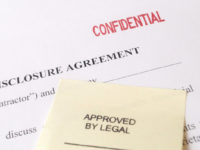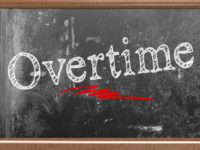When making a will it is important to fully understand what can be legally bequeathed to a loved one, business partner or friend. As the leader of a business, you should be aware of who inherits your business and other assets upon your death.
While it might be easy to define which of your possessions can be transferred through your will, there are some important types of ownership interests that cannot be transferred:
- Property held in Joint Tenancy: Joint Tenancy is an equal ownership right in which if you and your partner own an equal share in a piece of property, you cannot bequeath you half of the property to another. Instead, it will automatically transfer in its entirety to the other owner.
- Property held in a Trust: A Trust gives ownership rights of the property or items contained therein, to the beneficiary of the Trust. As such, any amount of money or personal, cannot be transferred to another via a will.
- Digital property rights: While people attempt to leave passwords and other information in wills for the transfer of their digital accounts to a living person, the law does not allow this. Instead, make sure all parties have administrator rights so important information is not lost.
- Beneficiary accounts: If you are the owner of a life insurance policy and designated a beneficiary, money cannot be transferred with requests you make via your will. Instead, money will be transferred in accordance with the policy.
- Superannuation accounts: Super plans allow for the naming of a beneficiary to whom the monies will be distributed at the time of death of the owner. Hence, the owner cannot also pass the monies via their will.
- Upon Death Payables: If you have an account, such as a money market, which states that upon your death the monies will be transferred to a particular individual, you cannot make a secondary election for the transfer the monies to another via your will.
There are some additional considerations that must be noted:
- Do not overly restrict the giving of a gift, whether real estate or money. For example, you cannot bequeath a home that you own on the condition that the recipient will not sell it.
- Do not leave funeral instructions in a will. For such matters, it is best to create a separate document for review and implementation immediately upon your passing.
- Write a business succession plan separate to your will.
Finally, there are some things a will simply cannot do;
- Avoiding Estate Taxes: If you want to maximise tax advantages upon your passing, it is best to speak with a tax law specialist.
- Avoid Probate: To ensure an efficient process, it is best to carefully prepare your will and clearly state your intentions so the court can understand your wishes.
- Provide Guardianship for your children, or care for your special needs child: You will need to create separate documents to care for your children. In addition, you might want to discuss the various types of trusts you can set up to provide for your child’s financial needs after your passing.
- Providing for your pets. It is best to ask someone you trust to care for your pet.
All of these areas are of great importance and can create additional complications when trying to draft a will that will be legally enforceable. It is always best that you first consult legal and financial professionals who can help you best plan for the needs of those you leave behind.
Rolf Howard, Managing Partner, Owen Hodge Lawyers
















